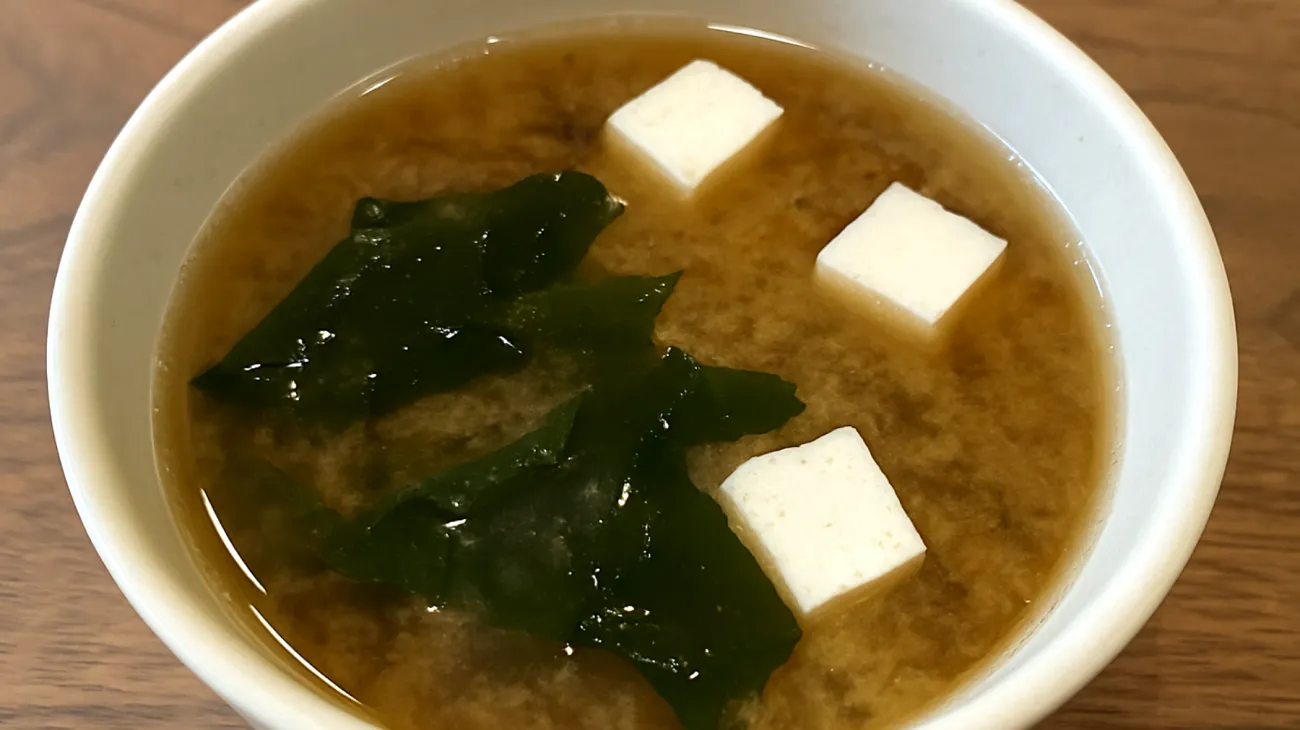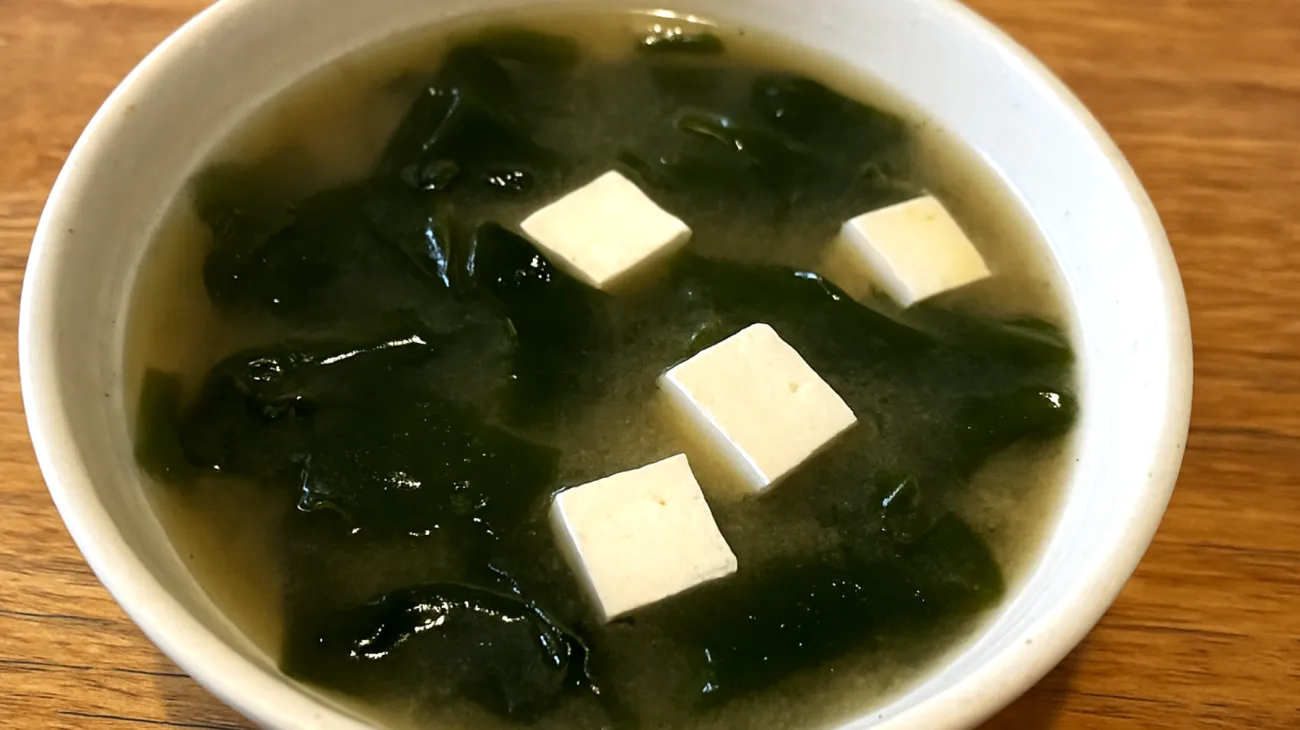The gentle steam rising from a bowl of miso soup carries more than just warmth—it delivers a symphony of nutrients that your exhausted body craves after pushing through another demanding day. This humble Japanese staple has quietly emerged as a sophisticated nutritional recovery tool, particularly when you’re battling evening depletion that leaves you reaching for quick fixes.
The Science Behind Evening Nutritional Recovery
When your energy reserves hit rock bottom after intense physical or mental exertion, your body enters a complex metabolic state that requires specific nutrients to restore balance. Nutritionists recognize that the period between dinner and bedtime represents an excellent window for strategic nutrient intake to support overnight recovery.
Miso soup with wakame seaweed and tofu provides what dietitians call “synergistic nutrition”—ingredients working together to amplify their individual benefits. The fermented soybean base delivers complete proteins that your muscles desperately need for overnight repair, while the wakame contributes essential minerals that conventional Western diets often miss entirely.
Unlocking the Power of Fermented Nutrition
The fermentation process that transforms soybeans into miso creates a product rich in bioavailable nutrients. While some sources incorrectly claim miso contains significant vitamin B12, the truth is that naturally fermented miso doesn’t provide biologically active B12 in amounts comparable to animal products. This is actually one of those persistent food myths that needs debunking—any B12-like compounds present in traditional miso are generally inactive in humans.
What miso genuinely delivers is substantial amounts of folate and other B vitamins, which work together to support your body’s energy metabolism at the cellular level. This combination becomes especially powerful when consumed in the evening, as it provides your liver with the raw materials needed for overnight detoxification and metabolic reset processes.
The Probiotic Advantage
What sets miso apart from other protein sources is its rich population of beneficial bacteria. These probiotics support digestive health, nutrient absorption, and immune function. While emerging evidence suggests gut microbiota influence neurotransmitter production, including serotonin which affects mood and sleep quality, the direct clinical evidence for miso specifically remains preliminary but promising.
Wakame: The Mineral Powerhouse from the Sea
While most people focus on the miso, the wakame seaweed quietly delivers some of the soup’s most impressive nutritional benefits. This ocean vegetable contains concentrated levels of iodine, a mineral that’s essential for thyroid function but increasingly rare in modern diets due to soil depletion.
The iodine in wakame supports your thyroid’s ability to regulate metabolism, which directly impacts your energy levels throughout the following day. Additionally, wakame provides significant amounts of minerals that work synergistically to enhance your recovery process.

- Magnesium for muscle relaxation and nervous system support
- Calcium in a highly bioavailable form that compares favorably with dairy sources
- Iron bound to organic compounds that enhance absorption
- Potassium for maintaining proper electrolyte balance after stressful days
Tofu’s Gentle Protein Profile
The silken tofu floating in your miso soup delivers easily digestible plant proteins that won’t burden your digestive system during the crucial pre-sleep period. Unlike heavy animal proteins that can disrupt sleep patterns, tofu’s amino acid profile promotes relaxation while still providing the building blocks your body needs for overnight tissue repair.
Tofu contains important amino acids including methionine and lysine, which contribute to tissue repair, neurotransmitter synthesis, and overall cognitive health. These amino acids support your body’s recovery processes, particularly after intense mental work, making tofu an ideal evening protein source.
Optimal Timing and Preparation Strategy
The key to maximizing miso soup’s restorative benefits lies in strategic timing. Consuming this nourishing bowl 2-3 hours before bedtime allows sufficient time for initial digestion while ensuring that nutrients reach your bloodstream during the early stages of sleep when recovery processes peak.
Temperature plays an important role in the soup’s effectiveness. The warmth may trigger gentle vasodilation that could enhance nutrient absorption and promote the natural temperature drop that signals sleep readiness to your brain, though this specific benefit remains more observational than clinically documented.
Choosing the Right Miso
Not all miso varieties deliver equal benefits. Low-sodium options prevent the sleep disruption and morning puffiness that can result from excessive salt intake. Look for aged varieties, which typically contain higher concentrations of beneficial bacteria and more complex flavor profiles.
Important Considerations for Thyroid Health
While wakame’s iodine content benefits most people, those with existing thyroid conditions should consult healthcare professionals before making miso soup a regular evening ritual. The concentrated iodine can potentially interfere with thyroid medications or affect hormone fluctuation in sensitive individuals.
For healthy individuals, adequate iodine intake from wakame helps maintain normal thyroid function and metabolic energy. This supports overall thyroid health rather than treating any specific conditions.
This traditional Japanese comfort food represents far more than simple soup—it’s a functional food that addresses the specific nutritional needs of your recovery-seeking body. The next time exhaustion leaves you searching for genuine nourishment rather than empty calories, consider the scientifically-backed restorative benefits of miso soup as your evening restoration ritual.
Table of Contents

